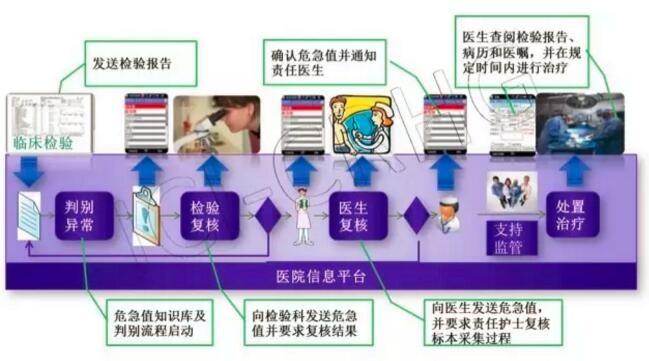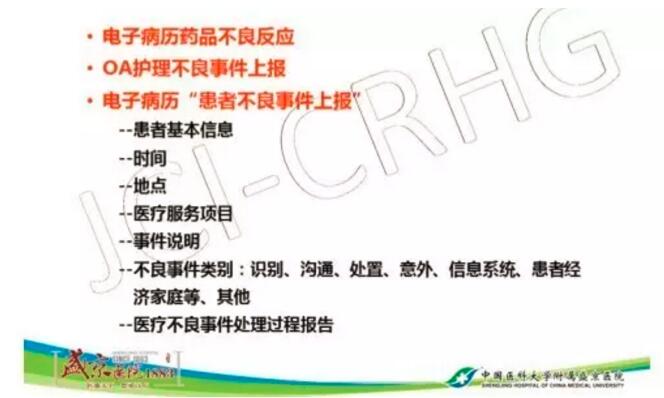Recently, in sharing the thinking and practice of hospital quality management, Mr. Guo Qiyong, Vice President of China Medical University and Dean of Shengjing Hospital affiliated to China Medical University, said that if the medical system can achieve the safety level of the aviation industry, it is probably medical safety. Top level.
Indeed, the quality management and safety level of the aviation industry has always been the benchmark for learning in all walks of life. So how can the medical industry improve safety and ensure quality to create an “aviation-grade†medical safety system?
The following is an excerpt from the sharing of the 2017 Chinese and Foreign Hospital Management Masters Face-to-face event jointly organized by Guo Jun JCI and China Resources Shuanghe on June 20.
First, closed loop management
The quality management of a hospital is often a series of measures that are carried out around a link or an event of medical treatment to ensure its quality. For this link or event to be planned, executed, checked, feedback and finally improved, that is, the PDCA cycle that people often say. It is at the heart of all quality management – ​​forming a closed-loop responsibility and quality assurance.

Dean Guo first gave an example of critical value management: the closed-loop management of the critical value of Shengjing Hospital started from the detection of abnormal values ​​by the laboratory, followed by the closed-loop approach to abnormal discrimination, test review, doctor review, doctor support/regulation, Dispose of treatment and other steps. The closed loop makes the process of dealing with critical values ​​not fall, and the critical situation is quickly controlled and managed.
Subsequently, Dean Guo introduced the practice of closed-loop management of surgery. The closed loop of surgery is the most classic, complex and largest closed loop in the hospital; this closed loop involves multiple departments and multiple links, and many of them need their own small closed loop to form a large closed loop of the entire surgical procedure. Management.

The first step in the closed-loop management of surgery begins with the qualification of the doctor who opened the bill. Dean Guo said that all operations involving the removal of organs and four types of surgery can only be applied by the chief physician. For some cases with more complicated conditions, special surgery approval applications are required. Of the 110,000 operations performed annually at Shengjing Hospital, more than 2,000 have to apply for special applications; and in the past 10 years since the implementation of this process, only one case has filed a complaint. It can be seen that the refined closed-loop management makes the communication between doctors and patients more thorough and smooth, and effectively avoids the contradiction caused by information asymmetry.
Second, information management
“If we upgrade quality control from a paper base to an information-based, networked system, then we can make quality control more accurate and accurate.â€
Dean Guo introduced that Shengjing Hospital has realized the unified communication across networks/devices by using advanced three-network convergence (wired network, wireless network and telephone network) technology (three network sharing one service platform), three network convergence platform It is not only stable and reliable, but also ensures the seamless connection of business data, making quality control more timely and convenient.
Among them, the "self-feedback control system" that monitors important nodes is quite characteristic. The system can be used to push the problems found on important nodes to the responsible person to form the transmission of the first responsibility point; the responsible person needs to intervene in time and give feedback in the system to make the problem of this node disappear; self-feedback control refers to Such a discovery problem - push problem - the management mode in which the responsible person solves and feeds back the problem. Managers can make the monitored nodes suitable for the development and operation of medical management through continuous adjustment; if a certain point does not make mistakes, you can cancel the switch to other nodes that are easy to make mistakes.
Another feature of the self-feedback mode is that it will be deducted if there is no on-time feedback. According to different items, the different scores of the responsible person are deducted; because the deducted score will be linked to the performance, the information of the feedback system will be taken seriously.
Of course, the hospital does not necessarily have to use the information platform. The information platform can help the hospital save manpower and speed up, but other methods can also achieve management purposes; even use the telephone to communicate what is not normal, specify a certain to check, this way is also possible.
“The point that needs to be clear as a manager is that the concept of cost cannot be ignored in quality management; quality without cost is of no value, because quality is never ending.â€
Third, the adverse event reporting system
Adverse event reporting is one of the important links in medical quality and safety management. Dean Guo mentioned that the improvement of the safety of the modern aviation industry cannot be separated from the no-fault reporting system. In such a system, the concern of reporting errors is not penalized, because such reports reduce the likelihood that other aircraft will be at risk, making the aviation industry as a whole safer. Similarly, in the medical industry, such a reporting system should also be implemented. Everyone will report the questions openly and honestly, so that they can better cope, solve and prevent them.

At the end of the sharing, Dean Guo concluded that medical and aviation are a little different. The life safety of pilots and passengers is tied together, but doctors, nurses and patients did not have such a common fate before. Therefore, medical safety must be the shared responsibility and common philosophy of all employees, so that the quality of medical care can be guaranteed, and the hospital safety culture can be truly established!
Mouth Pieces
Mouth Pieces,Disposable Mouth Pieces,Medical Mouth Pieces,Disposable Cardboard Mouthpieces
Hengshui Qifei Paper Products Co. LTD , https://www.hengshuiqifei.com


